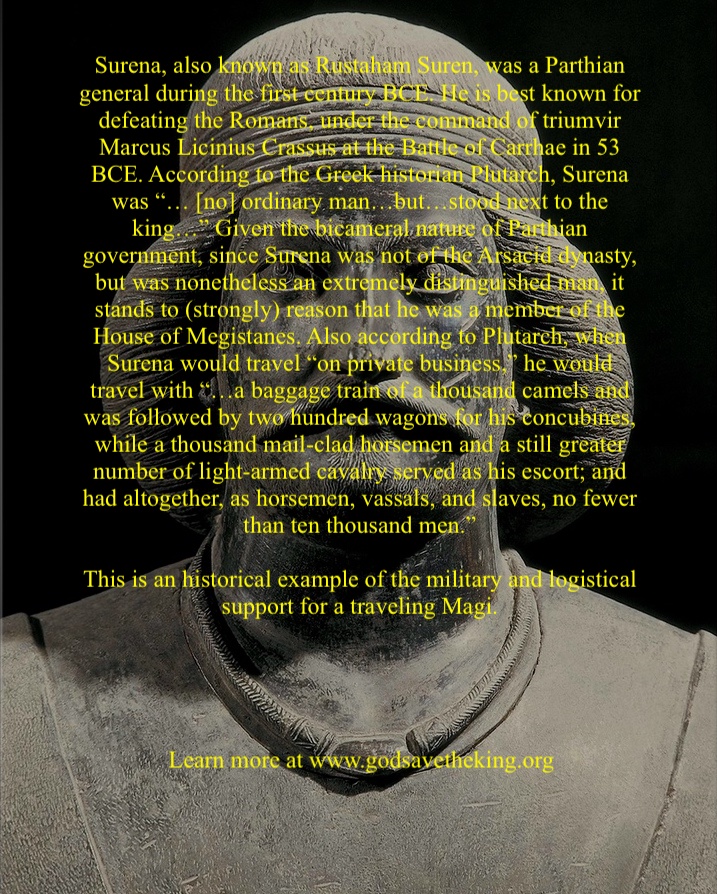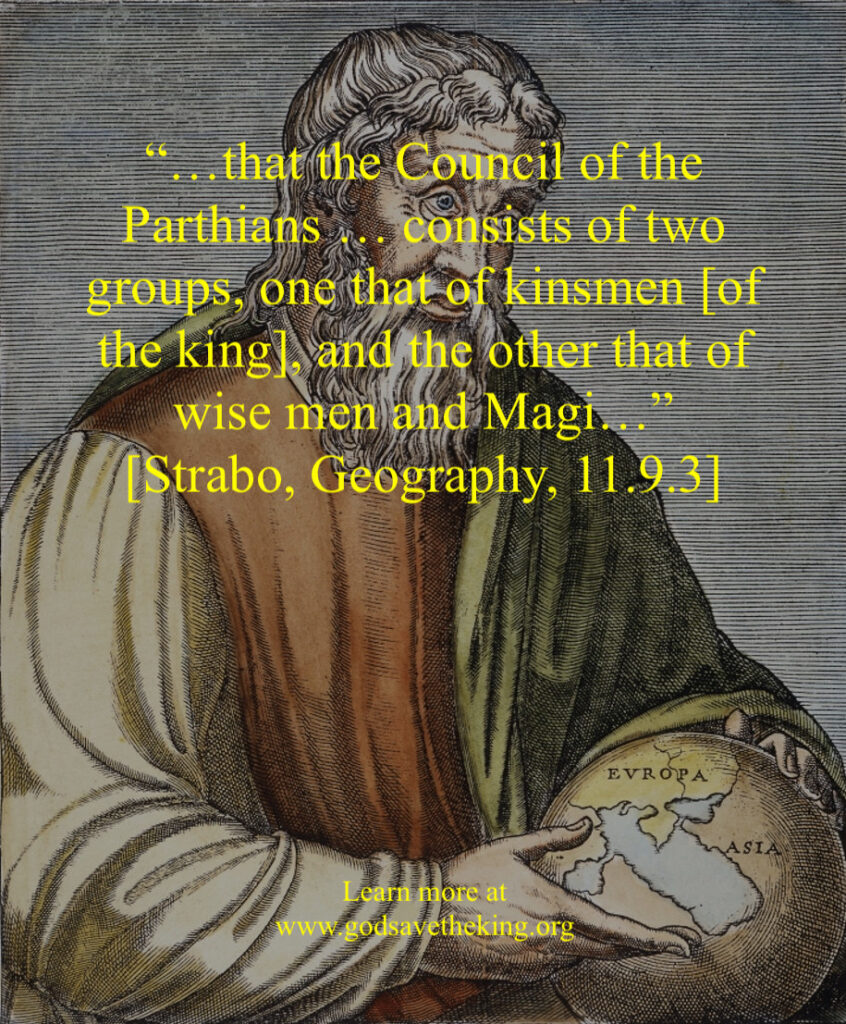
Surena, also known as Rustaham Suren, was a Parthian general during the first century BCE. He is best known for defeating the Romans, under the command of triumvir Marcus Licinius Crassus at the Battle of Carrhae in 53 BCE. According to the Greek historian Plutarch, Surena was “… [no] ordinary man…but…stood next to the king…”1 Given the bicameral nature of Parthian government,2 since Surena was not of the Arsacid dynasty, but was nonetheless an extremely distinguished man, it stands to (strongly) reason that he was a member of the House of Megistanes (Magi).3 Also according to Plutarch, when Surena would travel “on private business,” he would travel with…
“…a baggage train of a thousand camels and was followed by two hundred wagons for his concubines, while a thousand mail-clad horsemen and a still greater number of light-armed cavalry served as his escort; and had altogether, as horsemen, vassals, and slaves, no fewer than ten thousand men.”
Plutarch, Life of Crassus, 21.6
This is an example of the military and logistical support that would accompany one traveling Magi. Imagine what must have arrived at the court of Herod the Great that caused him and all Jerusalem to be “troubled”.
When Herod the king heard this, he was troubled, and all Jerusalem with him.
Matthew 2:3 NKJV
The House of Suren was one of seven noble houses that comprised the House of Megistanes. Of the seven, the House of Suren (or Surenas) is one of two Parthian noble families explicitly mentioned by name in sources datable to the Arsacid period–the other is the House of Karen. The head of Suren family had the privilege to crown the first Parthian king in the 3rd century BCE, which founded a tradition that was continued by his descendants.
Given that the House of Suren held the specific right of investiture (crowning the king), what is the likelihood that members of House of Suren traveled to Jerusalem and the Bethlehem to crown Jesus?
And is it a coincidence that Phraates IV, King of Parthia, had just recently died?
- Plutarch, Life of Crassus, 21.6
- Strabo, Geography, 11.9.3
- According to Seneca (Epistula 4.7), the nobles and heads of noble clans bore the title megistánes.
